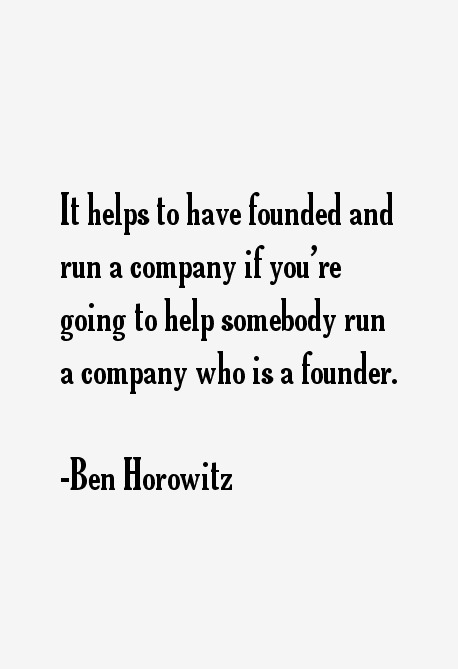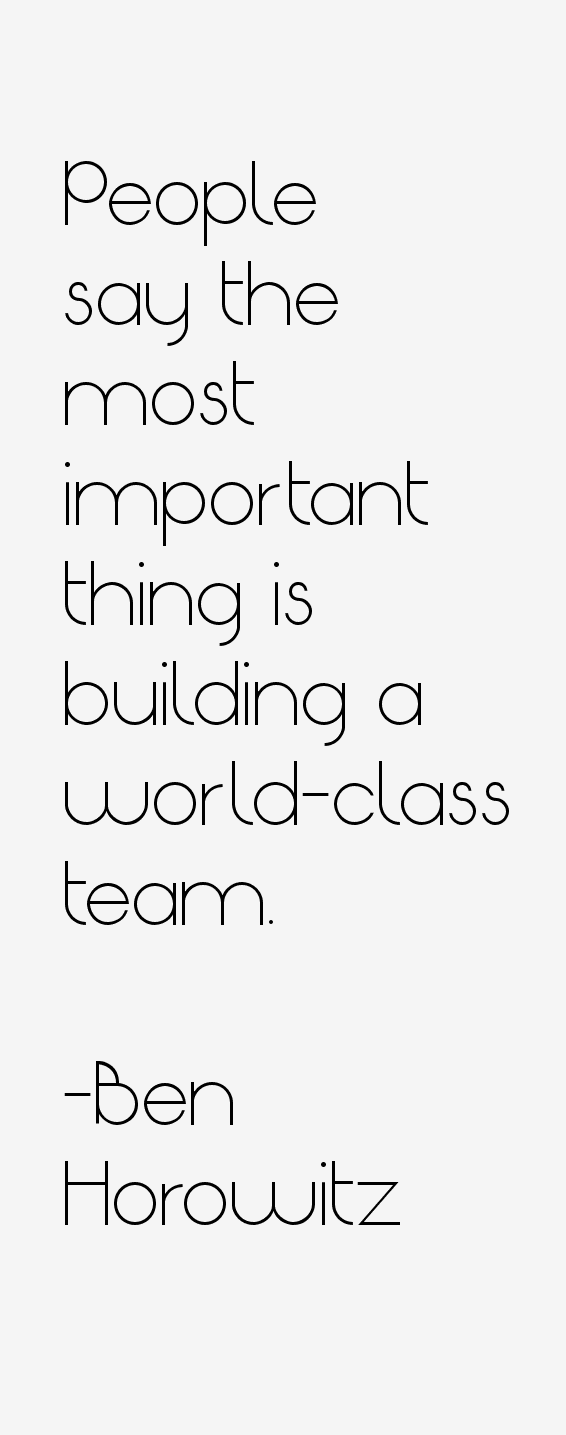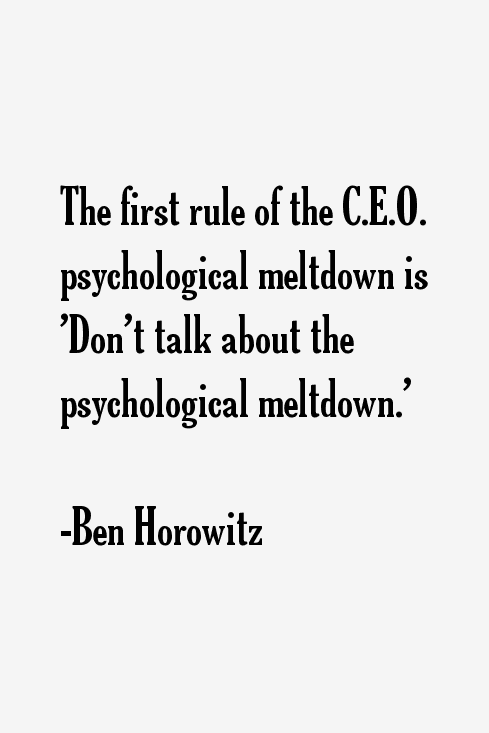Ben Horowitz Quotes & Sayings (Page 2)
Ben Horowitz quotes and sayings page 2 (businessman). Here's quote # 11 through 20 out of the 81 we have.

“When screening engineers from other companies, its smart to value engineers from great companies more than those from mediocre companies.”
“In life, everybody faces choices between doing what's popular, easy, and wrong vs. doing what's lonely, difficult, and right. These decisions intensify when you run a company, because the consequences get magnified 1,000 fold. As in life, the excuses for CEOs making the wrong choice are always plentiful.”

“I emphasize to C.E.O.s, you have to have a story in the minds of the employees. It's hard to memorize objectives, but it's easy to remember a story.”

“It helps to have founded and run a company if you're going to help somebody run a company who is a founder.”

“People say the most important thing is building a world-class team.”

“The first rule of the C.E.O. psychological meltdown is 'Don't talk about the psychological meltdown.'”
“By far the most difficult skill I learned as a C.E.O. was the ability to manage my own psychology. Organizational design, process design, metrics, hiring and firing were all relatively straightforward skills to master compared with keeping my mind in check.”
“From a systematic standpoint, I think that capitalism is the best system. I can spend a lot of time explaining why I like communism, but it is actually not a good solution. Nor is socialism. So, capitalism is the right model.”

“How do you make your company a good place to work in general? That's a really, really, really large and complex set of skills. A lot of it is on-the-job training, combined with excellent mentorship.”
“I had a terrible time hiring rich people. It sounds funny, but the problem is when things go wrong they can ask, 'Why am I doing this?' You don't ever want anybody asking that question. You want them to say, 'I know why I'm doing it, I need the money, let's go' or whatever it is that draws them.”
Ben Horowitz Quotes Rating
No Ratings Yet
Leave A Comment
























